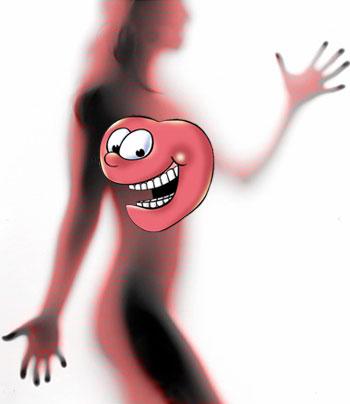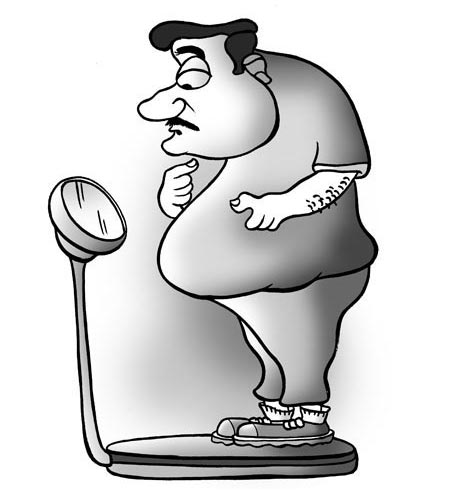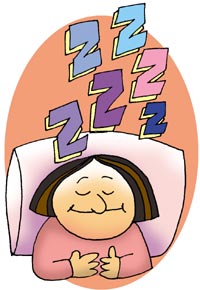
Heartburn is a symptom arising from Gastroesophageal Reflux Disease (GERD). This is also called gastric reflux disease or acid reflux disease.
The burning you experience is due to the mucosal damage caused by the stomach acid that travels up to the esophagus (food pipe). This condition is associated with the lifestyle and eating habits of people. Fortunately, it is a completely reversible condition with a little bit of lifestyle modification and diet changes in most cases.
By altering your current eating and other habits a little bit, and avoiding certain foods, you can certainly get relief from GERD.
Here are 10 tips you can follow to help you prevent heartburn:
Click on NEXT to read on...
is one of the most trusted source of information about good health and wellness. To those who want to manage their health themselves, LifeMojo provides necessary information, tips, tracking tools and support to help them stay informed and motivated

1. Eat Small Frequent Meals
Three large meals will put unnecessary pressure on your lower esophageal sphincter (LES). This results in the reflux of food into the esophagus. Instead, have 5 to 6 small meals during the day. Sit down to eat and chew your food well.
There is a saying that "you should drink your solids and eat your liquids". This means that you should chew your solid foods so well that it becomes of thin consistency (like that of a liquid).
Also, you should not gulp down your liquids at one go. (By this tip, you can shoot two birds in one shot - this also helps in weight loss, if that is one of your goals!)

2. Avoid Certain Foods and Beverages
Certain foods and beverages cause acid reflux because they relax the lower esophageal sphincter. Foods to avoid are:

3. Eat Your Last Meal of the Day at Least 3 hours Before Bedtime
If you are in the habit of sleeping at 11 pm, finish your dinner by 8 pm.
When you lie down with your stomach full, the food in your stomach tends to push against the lower esophageal sphincter, thus causing reflux.

4. Maintain a Reasonable Weight
Abdominal fat places extra pressure on your esophageal sphincter, thus pushing acid into your esophagus.
Lose weight if you're overweight, and maintain your weight id you're not.

5. Elevate Your Head While Sleeping
Elevate your head, neck, and upper body while sleeping. This does not mean adding more pillows, as this will only elevate your head.
If you are suffering from chronic GERD, raising the head of your cot by placing bricks or wooden blocks underneath will help. This sleeping position helps reduce pressure on your LES.
The height of the elevation is critical and must be at least 6 to 8 inches (15 to 20 cm) to be at least minimally effective to prevent the backflow of gastric fluids.
You can also try sleeping on your left side to prevent heartburn.
A study conducted by the Graduate Hospital in Philadelphia suggests that sleeping on your left side is the best way to avoid nighttime heartburn, and sleeping on your right side may increase your heartburn symptoms.

6. Avoid Tight-Fitting Clothing at the Waist
Tight-fitting clothing around the waist puts pressure on the LES, forcing the stomach acid into your esophagus.
So, avoid slenderizing garments and tight-fitting belts.

7. Stop Smoking
Studies have shown that smoking weakens and relaxes the muscles the lower esophageal sphincter (LES).
If the LES isn't working properly, stomach contents can reflux back up into the esophagus. Furthermore, cigarette smoking slows the production of saliva, which you need to help neutralize the stomach acid in your esophagus.
Smoking also stimulates the production of more stomach acid.

8. Avoid Alcohol
Alcohol also weakens the LES as well as interferes with the speed of gastric emptying. If you are not able to completely give up alcohol, try to adopt these tips:

9. Try a Gluten-Free Diet
Gluten is a protein present in wheat, barley, and rye. Sometimes, gluten is the cause of GERD symptoms.
A small study conducted by Italian researchers found that gluten-free diet could help reduce GERD symptoms and prevent damaging acid reflux in those with celiac disease.
Try eliminating gluten from your diet and see if it makes a difference.
Click here for Gluten-free recipes

10. Stay Happy, Relaxed, and Stress Free
When you are stressed, you tend to forget to eat at regular intervals or tend to smoke or drink, which could again become the cause of developing GERD.
So, have a heart. Take care of yourself. Only you can take care of yourself in the best possible way.
If, in spite of all these measures, you still experience the symptoms of GERD, consult your doctor, who could prescribe an acid blocker which inhibits the release of acid in the stomach.
Although it will give you relief only after an hour or so, you will be free from your symptoms for at least 12 hours.